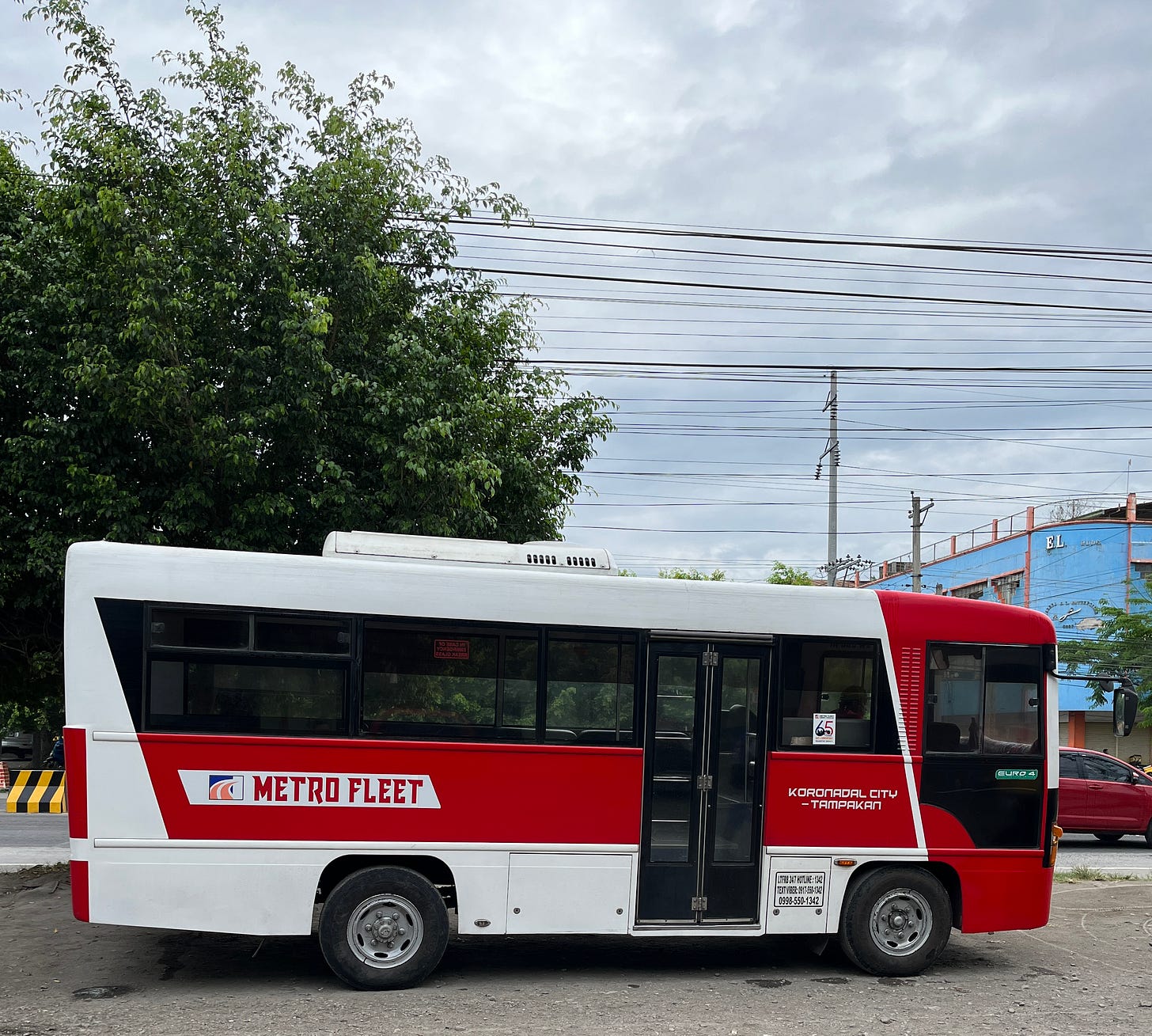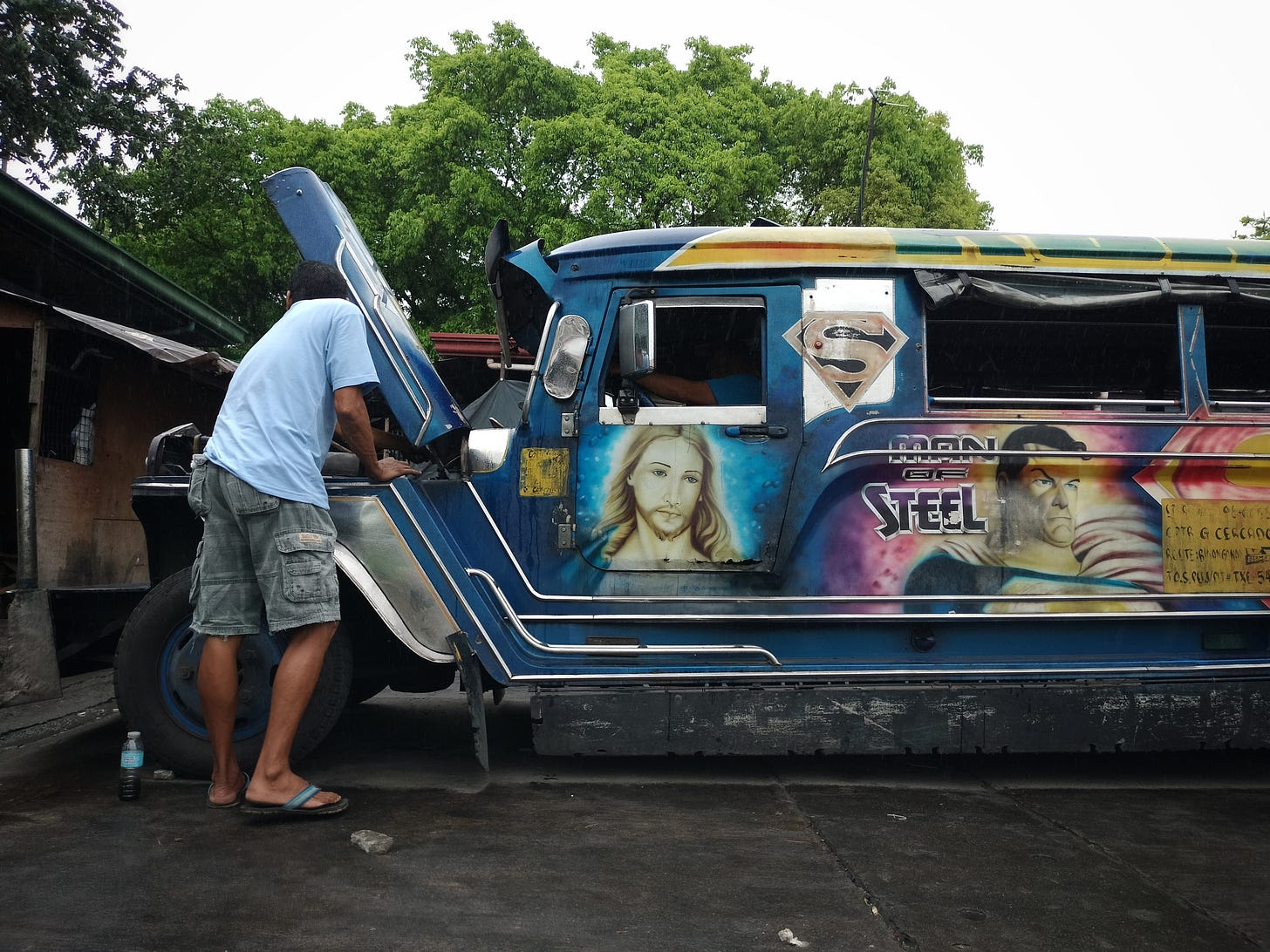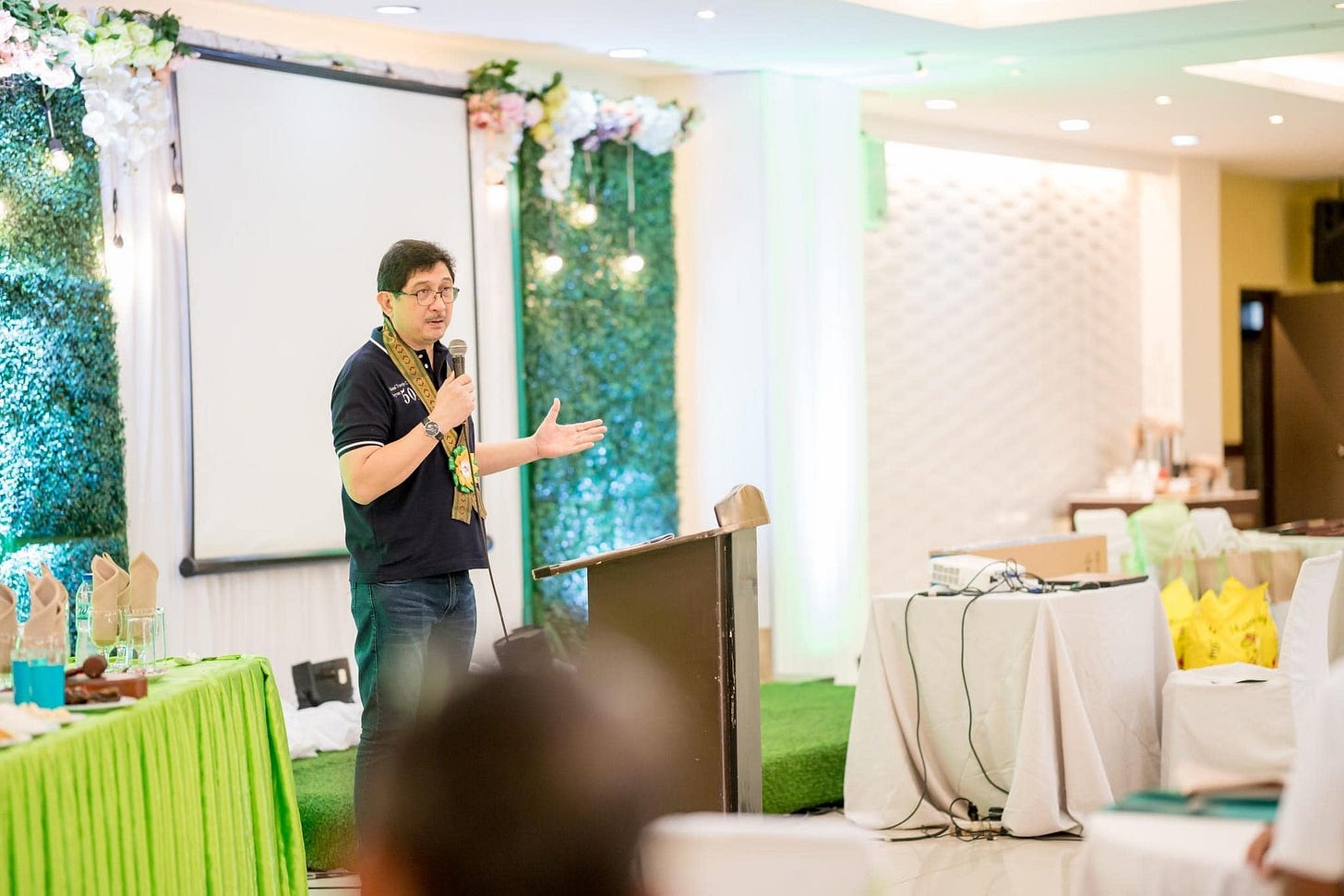Gov't eases jeepney modernization rules further
Traditional jeepneys no longer subject to being phased out, officials say
A modern jeep waits to be filled with passengers at its terminal in Koronadal City, the capital of South Cotabato province in Mindanao in this photo taken in February.
(Parts of this piece came from a draft produced for a writing grant that was cut short in 2021.)
In mid-2021, a high-level transport official went full Duterte.
He promptly decided to phase out all traditional jeepneys in the Philippines once and for all.
As a result, drivers and operators only had one of two choices at that time. They were given a year to either A) put up or join transport cooperatives (a move expected to help them upgrade their fleets); or B) sell their antiquated vehicles at a fixed price to the government (a move that would result in jeepneys being turned over to junkyards for dismantling, never to be used again).
Either way, whichever route was taken, all traditional jeepneys would go the way of the calesa.
"One of the objectives of the [jeepney modernization] program is to eliminate decrepit, dirty, and unsafe vehicles," the official said in an online video interview in 2021. "...[W]e cannot allow [traditional] jeepneys to be brought to the province because we won't be addressing the roadworthiness of these vehicles if that's the case."
Under previous rules, antiquated jeeps such as this one would automatically be headed for the junkyard to be dismantled, never to be used for transport again. (Photo by Bernard Testa)
His remarks made sense.
After all, the jeepney phaseout was part of the government's Public Utility Vehicle Modernization Program, (which, by the way, is marking its seventh anniversary this year).
However, the official's proposal failed to make any significant headway.
It was arguably way too fast and — pardon the reference to movies starring Vin Diesel [Diesel!] — much too furious.
Office of Transportation Cooperatives’ Chair Andrew Ortega: We have eased some modernization rules to encourage more jeepney drivers' groups to consolidate. (Photo from the Facebook page of the OTC.)
In no way was the year 2021 the right time to force jeepney drivers and operators into spending for upgrades as required by the modernization program.
This was because at that time they were struggling to stay alive.
Not only were they avoiding COVID-19 infection, they were also preserving what was left of their livelihoods during the lockdowns.
The government, to its credit, extended the jeepney modernization deadline from March 2020 to end-April 2024, its eighth extension yet.
Three years, one global pandemic, and another presidential election later, modernization rules have been eased further, helping benefit transport workers, especially those planning to join the program.
Traditional jeepneys are no longer subject to being phased out, another transport executive said in an interview in February.
In short, they can still be used as private vehicles "as long as they are roadworthy and are acceptable to the Land Transportation Office [LTO]," Jesus Ferdinand "Andy" D. Ortega, the chair of the Office of Transportation Cooperatives (OTC), one of the agencies involved in the modernization program.
Acceptable is the operative word.
To be sure, many traditional jeepneys — some of which date back to the Ramos administration — may still end up failing road tests.
But under these recent rules, none would be considered scrap metal on wheels by default as proposed previously.
Celino Geronimo of the OTC: We provide financial and operational training to members of new transport cooperatives seeking government accreditation.
In the same interview, Ortega also said that the OTC — which provides financial and operational training to cooperatives — has also made its accreditation process faster.
Instead of a month, newly-established jeepney cooperatives can be accredited within two weeks, OTC officials said.
This will help speed up the coops' transition to a more modern, if high-tech operations. These involve technologies such as vehicle tracking via GPS and an automated fare system which remits fares to the coops' bank accounts, allowing their lender — the Land Bank of the Philippines — to deduct payments for new vehicles digitally.
Ramil Urrera, OTC board secretary: We continue to provide assistance to drivers’ groups in their moves to put up or join cooperatives.
Likewise, new jeepney cooperatives are no longer required to put up and lease garages immediately, based on previous rules.
"Now, a cooperative only needs to have a garage a few days or two weeks before their new vehicle arrives," Ortega said, adding that this change will help them save money on rent.
Ortega also expressed optimism that these improvements will further encourage more jeepney operators to consolidate before the deadline this April.
"We hope to reach 85%," he said, adding that around 75% of drivers and operators groups across the country have already put up or joined cooperatives.







